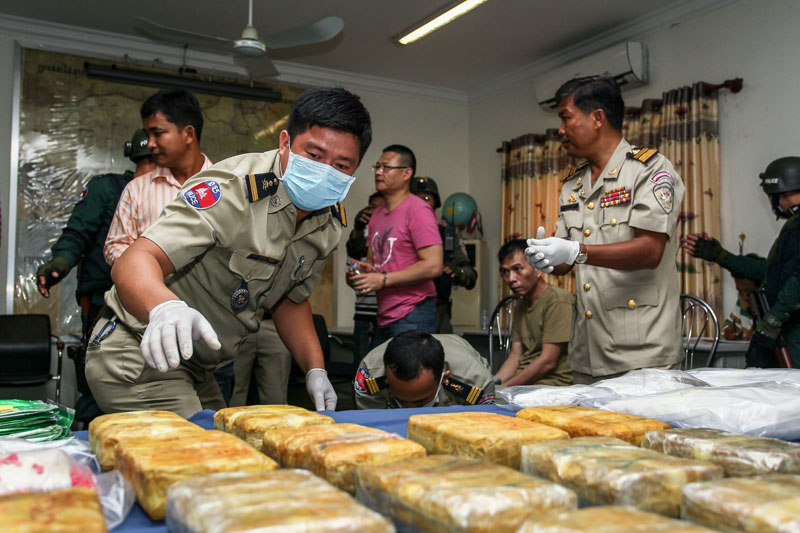With rates of methamphetamine abuse climbing, progress on drug treatment programs is failing to keep up, said civil society representatives and experts who participated in a panel discussion on drug abuse on Tuesday in Phnom Penh.
Meas Vyrith, secretary-general of the National Authority on Combatting Drugs, said the government would start implementing new anti-drug efforts on January 1 that don’t rely solely on law enforcement and would include improved community-based treatment programs.

“We know that there’s a rise in drug use,” he said. “We will apply law enforcement measures and rescue measures,” he added, without providing details. “We will regard drugs users as victims.”
But at a time when meth use is growing—a report by the U.N. Office on Drugs and Crime (UNODC) last year noted increasing meth abuse in Cambodia and the region in 2013—drug treatment programs are not keeping pace, experts said.
The Health Ministry devised Cambodia’s first national strategies to reduce the harm of drug use in March, but “the implementation is not visible” and progress is slow, Sou Sochenda, a manager at Khana, an NGO that supports drug treatment and HIV prevention programs, said in an email on Wednesday.
While the government has invested more in drug treatment services, “it is still insufficient and a major impediment” to combating drug abuse, Olivier Lermet, a regional adviser for the U.N. drug office, said in an email.
“Donor countries should also support this much more vigorously,” Mr. Lermet said. “This issue is a public health, public security and rights issue.”
Pilot community-based treatment programs—including drug counseling, rehabilitation and medical treatment—were rolled out by the government and UNODC in Banteay Meanchey province in 2010, and expanded to Battambang and Stung Treng provinces a year later. In 2013, the programs provided services to 1,200 drug users across the three provinces, according to the agency’s update from that year.
In the capital today, community-based treatment is offered at 21 health centers, said Ms. Sochenda of Khana.
“Yet this service needs to be scaled up and strengthened in terms of quality and resources,” including staffing and funding, she said.
Experts agreed that while the majority of meth users are concentrated in urban economic centers among poor populations, especially youth, the drug had expanded to rural areas and was also reaching into the middle and upper classes in cities.
Discrimination against drug users also remains an obstacle to generating support for treatment programs, the panelists said.
“There needs to be some pretty systemic shifts in the way people work with drug users,” said David Harding, an independent consultant. Without stopping the criminalization and dehumanization of users, he added, “progress will not be made.”